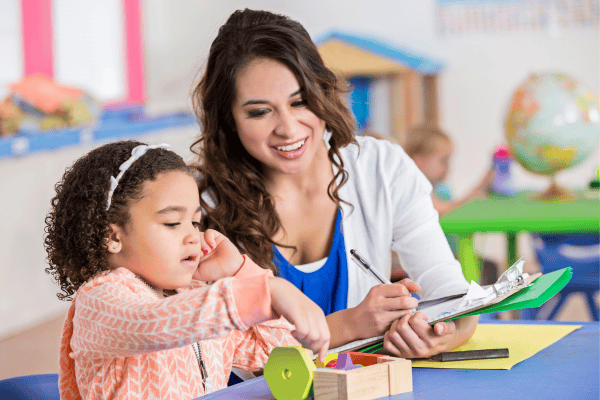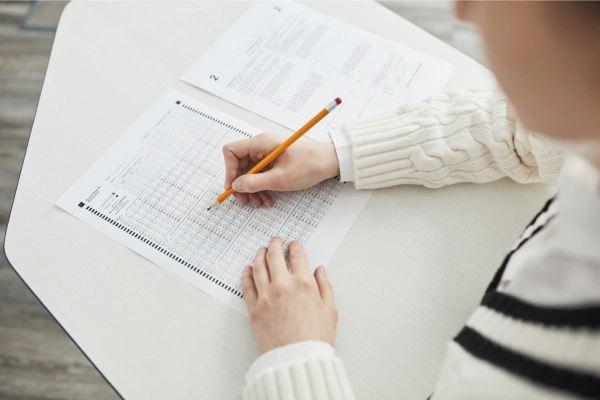AEPS
Assessment, evaluation, and programming system for infants and children

What Is AEPS?
If AEPS looks like a keysmash to you, not to worry – ONE Intervention is here to help! Basically, AEPS stands for the Assessment, Evaluation, and Programming System for Infants and Children.
The early years are crucial for a child’s development. During this time, their brain grows and learns to process and absorb information about the world around them. That’s why it’s quite important for each child to be able to access the support they need to thrive and unlock their full potential.
AEPS helps us do this.
But How Does AEPS Work?
In short, AEPS is a comprehensive system that assesses and monitors a child’s developmental skills across various domains. In particular, AEPS was designed to identify children at risk for developmental delays.
The cornerstone of AEPS is that it is based on developmental level, rather than age. In other words, AEPS’ approach is criterion-referenced, meaning that it compares a child’s skills to established developmental milestones rather than to other children of similar age.

What Does AEPS Typically Assess?
- Cognitive Skills e.g. Problem solving, learning and memory
- Language Skills e.g. Verbal communication, reading and writing
- Social and Emotional Skills e.g. Peer interaction, managing emotions
- Fine and Gross Motor Skills:
- Fine Motor Skills: Development of small muscle movements (i.e. involving hands and fingers) for tasks like picking up small objects / manipulating toys / drawing / writing.
- Gross Motor Skills: Development of large muscle movements(i.e. involving the entire body.) AEPS might observe a child’s ability to walk / run / jump / climb / play ball.
- Adaptive Skills e.g. Self-care tasks – dressing and toileting (for older children)

What Are The 4 Stages In AEPS?

Step 1: Assessment
Our Child Psychologist conducts an assessment using observations, standardised tests, and caregiver input.

Step 2: Evaluation
Our professional staff analyse the results of this assessment and identify the child’s developmental strengths and weaknesses. This determines their specific individual needs.

Step 3: Programming
Based on the evaluation, our expert staff creates an Individualised Education Programme (IEP). This programme outlines specific goals and intervention strategies tailored to your child’s unique needs.

Step 4: Progress Monitoring
Our experienced therapists will regularly monitor your child’s subsequent progress. The programme will be adjusted as needed.
Early Intervention
The early detection of such developmental delays can allow for prompt intervention. In the long term, this can help your child overcome some of the mental and physical challenges that they may find more difficult without early intervention.
Individualised Support
Our programme ensures that your child receives the uniquely tailored support that they deserve. Our professional therapists curate the lessons to your child’s learning style and developmental pace.
Collaboration
AEPS enables collaboration between parents, therapists and educators. This ensures that your child can depend on a comprehensive support system, no matter if they are at home, in school, or at our Centre.
Data-Driven Decisions
The data we collect through these credible assessments allow us to help you make informed decisions when we develop your child’s intervention programme. AEPS is backed by research and can absolutely be trusted to improve your child’s holistic development.
